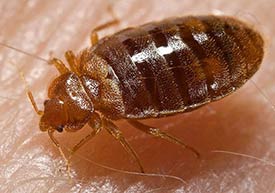
DDT was banned by the Environmental Protection Agency in 1972 because it was deemed to be too toxic for use. It was found to be killing off the majority of the bald eagle population and many other species of birds. Additionally, in laboratory tests that were performed, many animals that were exposed to DDT developed cancer as well. DDT has been found to stay in the body for many years so public health officials decided to eliminate the threat to humans by pulling the pesticide from the market rather than seeing a rash of cancer among human populations. The affects of DDT on humans is still at matter of debate among experts today.
Some people believe that the lack of DDT usage is the cause of the current state of bed bug infestation rates in the United States. Because of the upsurge of New Jersey bed bug infestations and infestations across the US, many people are currently under the impression that bringing back the powerful pesticide will reduce, and even completely eliminate bed bugs once again from the US.
Leading entomologists are now reporting that despite its strength, bed bugs had already become immune to the chemical prior to the 1972 banning and according to the National Pest Management Association, DDT was not being used for the treatment of bed bugs even before the banning occurred in 1972.
New Jersey pest control experts and other reputable pest control experts across the US are not calling for a return of DDT usage.
For safe and effective treatment of your New Jersey bed bug infestation, contact Allison Pest Control.